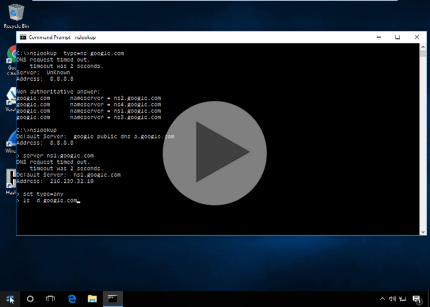Course description
Addressing for computer communications can seem overwhelming, but this course will give you an overview of IP and MAC addressing to help make the process more approachable. We will examine the source and destination addresses for network frames and packets, and discuss TCP and UDP to understand how reliable these protocols may or may not be in different circumstances. In addition, network security, such as secure design practices and secure communications, will be discussed as well as firewalls, DMZs, network access control and more. Finally, we’ll look at online security using SSL and TLS and Domain Naming Services, or DNS. This course is part of a series covering the CompTIA Advanced Security Practitioner (CASP).
Prerequisites
This course assumes that you have familiarity with information technology, basic networking, and basic security concepts. No scripting or “hacking” experience is required. Having windows command line experience as well as having administrative rights on your machine will be helpful.
Learning Paths
This course will help you prepare for the following certification and exam:
CompTIA Advanced Security
CAS-002: CompTIA Advanced Security Practitioner
Meet the expert
David Bigger is the lead trainer at Bigger IT Solutions. He has been information technology for a little over 20 years and has been training all over the US. He has worked with companies like US Military, Lockheed Martin, General Dynamics, Dominos Pizza, University of Utah and Expedia
Course outline
Secure Design
TCP-IP (33:31)
- Introduction (00:33)
- TCP/IP (00:30)
- Layers (01:11)
- Network Interface Layer (01:10)
- Internet or Network Layer (00:59)
- Transport or Host to Host Layer (01:44)
- Application Layer (01:09)
- TCP vs. UDP (00:45)
- TCP (00:48)
- TCP Flags (03:23)
- TCP (03:44)
- UDP (02:08)
- Addressing (01:10)
- IP Addressing (00:59)
- IP Addressing - IPv4 (01:59)
- Subnet Mask (03:10)
- Classes of Addresses - IPv4 (05:55)
- MAC Addressing (01:42)
- Summary (00:25)
Secure Design (20:52)
- Introduction (00:24)
- Secure Design (00:47)
- Firewalls (01:00)
- Packet Filtering (01:38)
- Stateful Packet Firewalls (01:22)
- Application Gateway (01:19)
- Placement (02:58)
- Routers (01:21)
- Switches (02:19)
- Routers and Switches (01:59)
- NAC (02:56)
- DMZ (02:22)
- Summary (00:22)
Secure Communication (32:47)
- Introduction (00:28)
- Secure Communications (00:30)
- SSL (01:04)
- SSL - Under the Hood (03:14)
- TLS (01:19)
- IPSec (02:05)
- What Makes up IPSec (02:48)
- IPSec Modes (01:01)
- DNS (02:32)
- DNS Zone Transfers (02:23)
- DNSSEC (01:20)
- Kerberos (01:42)
- Kerberos Flow (01:52)
- Demo: Wireshark (04:20)
- Demo: Traffic (05:38)
- Summary (00:23)
Zone Transfer Demo (05:15)
- Introduction (00:31)
- Demo: Zone Transfer (02:57)
- Demo: Attempt Domain Transfer (01:16)
- Summary (00:30)



